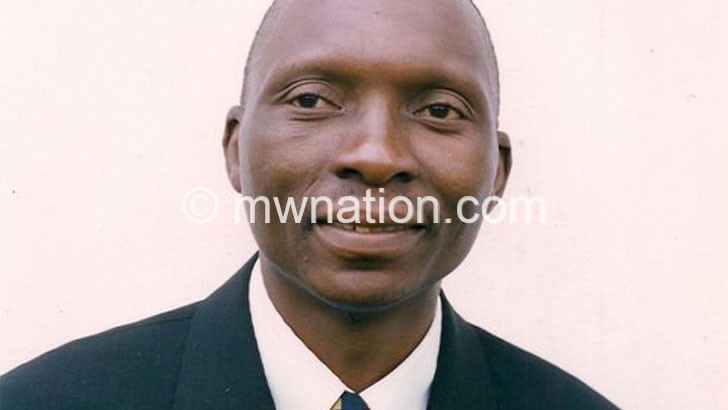The key is with APM
Q
: What do you make of the new turn in the DPP wrangles?

A
: Firstly, I should condemn in the strongest terms the violence that we saw and I want to believe that the appropriate security agencies or law enforcement organs of the government are taking action against the perpetrators. However, what happened reflects a bigger problem we have had since 1994 whereby the youth in the name of a party have been perpetrating violence. In most cases, the party in whose name they are perpetrating the violence is a ruling party and that has been a problem. So, since the culture has grown, violence has become part of political competition which should not be the case as competition should be about ideas. Sadly, this violence has gone unpunished since it manifested and it is now haunting us.
Q
: The DPP, while in power, was a relatively stable party, what does its current state of affairs say of the country’s political system?
A
: It is all because of the lack of democratic processes within the party. All this is happening because within our parties, especially the DPP, democracy remains alien. So, since it is alien, leadership is imposed and when this happens, there are other factions that are not happy. All this points to a lack of democratic culture within the DPP and beyond the DPP where there is no open contestation for the leadership.
Q
: With the wrangles resulting in violence, is the DPP in a better position to hold an elective convention?
A
: Holding a convention may not necessarily be a solution because DPP has a constitution which stipulates when a convention can be held. If I can recall, once someone is elected as a party president, they are supposed to be on that position for five years and [Peter] Mutharika was elected in 2018 meaning that his term runs up to 2023. So, the party cannot have a convention until 2023 unless Mutharika resigns and creates a vacancy that would require to be filled. However, as it is, the DPP president is holding the key for many issues that are happening in the party, including containing the wrangles that are happening. Unfortunately, he, too, has narrow interests that are stretching the party and have put it in its current state. The problem is that he has got his own agenda which is not in the interest of the party and is not in the interest of the country. The reason that we have got the DPP in the opposition failing to act as an alternative government is because it is a party that is under stretched and is about split.
Q
: What is a better way of mending patches outside of an elective convention?
A
: If Mutharika puts party and national interests ahead of his narrow interests, the party can regroup. Unfortunately, he does not want to accommodate democracy; he wants to impose decisions and leadership. That is what is creating problems within the party. If he was to give the party democratic space and open contestation for leadership, the party may regroup. But as long as he puts his personal interests ahead of the party interests, the DPP will remain challenged.
Q
:From whatever is happening in the DPP, what lessons can other political parties draw?
A
: There are lessons and they include: the need to provide a democratic space within the party and provide for a platform where people can freely contest for the party’s leadership. MCP [Malawi Congress Party] has survived all this long, after almost 26 years in opposition, essentially because they permitted democracy to a greater extent to prevail. The reason they produced [President Lazarus] Chakwera is because the party has remained together and it allows, to a greater extent, some important democratic processes such as choosing a leader. On one hand, that is why MCP is still stable to date. On the other hand, DPP, UDF, PP and Aford have struggled because they do not allow contestation for the leadership positions.





